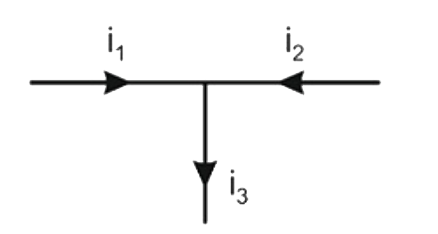Which two of the given transverse waves will give stationary wave when get superimposed?
z1=acos(kx−ωt) (A)
z2=acos(kx+ωt) (B)
z3=acos(ky−ωt) (C)
A and B
A and C
B and C
Any two
The correct Answer is:A
Step by step video & image solution for Which two of the given transverse waves will give stationary wave when get superimposed? z_(1) = a cos (kx-omegat) " "(A) z_(2) = a cos (kx +omegat) " "(B) z_(3) = a cos (ky - omegat) " "(C ) by Physics experts to help you in doubts & scoring excellent marks in Class 11 exams.
Updated on:21/07/2023Topper's Solved these Questions
- SUPERPOSITION AND STANDING WAVESBOOK - CENGAGE PHYSICS ENGLISHCHAPTER - SUPERPOSITION AND STANDING WAVESEXERCISE - Multiple Correct Answers Type
5 Videos
- SUPERPOSITION AND STANDING WAVESBOOK - CENGAGE PHYSICS ENGLISHCHAPTER - SUPERPOSITION AND STANDING WAVESEXERCISE - Fill in the Blanks Type
34 Videos
- SUPERPOSITION AND STANDING WAVESBOOK - CENGAGE PHYSICS ENGLISHCHAPTER - SUPERPOSITION AND STANDING WAVESEXERCISE - Integer
9 Videos
- SOUND WAVES AND DOPPLER EFFECTBOOK - CENGAGE PHYSICS ENGLISHCHAPTER - SOUND WAVES AND DOPPLER EFFECTEXERCISE - Integer
16 Videos
- THERMODYNAMICSBOOK - CENGAGE PHYSICS ENGLISHCHAPTER - THERMODYNAMICSEXERCISE - 24
1 Videos
Similar Questions
Knowledge Check
The stationary wave y = 2a sinkx cosωt in a stretched string is the result of superposition of y1=asin(kx−ωt) and
Ay2=acos(kx+ωt)By2=asin(kx+ωt)Cy2=acos(kx−ωt)Dy2=asin(kx−ωt)Three travelling waves are superimposed. The equations of the wave are
y!=A0sin(kx−ωt),y2=3√2A0sin(kx−ωt+ϕ) and y3=4A0cos(kx−ωt)
find the value of ϕ(given 0≤ϕ≤π/2) if the phase difference between the resultant wave and first wave is π/4Aπ6Bπ3Cπ12DNone of these
The following equations represent transverse waves :
z1=Acos(kx−ωt),
z2=Acos(kx+ωt), z3=Acos(ky−ωt)
Identify the combination (s) of the waves which will produce (i) standing wave(s), (ii) a wave travelling in the direction making an angle of 45∘ with the positive x and positive y axes. In each case, find the positions at which the resultant intensity is always zero.
View SolutionThe following equations represent progressive transverse waves
z1=Acos(ωt−kx)
z2=Acos(ωt+kx)
z3=Acos(ωt+ky)
z4=Acos(2ωt−2ky)
A stationary wave will be formed by superposing
View SolutionConsider the three waves z1,z2andz3 as
z1=Asin(kx−ωt)
z2=Asin(kx+ωt)
z3=Asin(ky−ωt)
Which of the following represents a standing wave?
View SolutionTwo simple harmonic motions are given by y1=5sin(ωt−π/3).y2=5(sinωt+√3cosωt). Ratio of their amplitudes is
View SolutionIn a stationary wave respresented by y=2acos(kx)sin(ωt) the intensity at a certain point is maximum when
View SolutionIn the given figure, if i1=3sinωtandi2=4cosωt, then i3 is

View Solution
